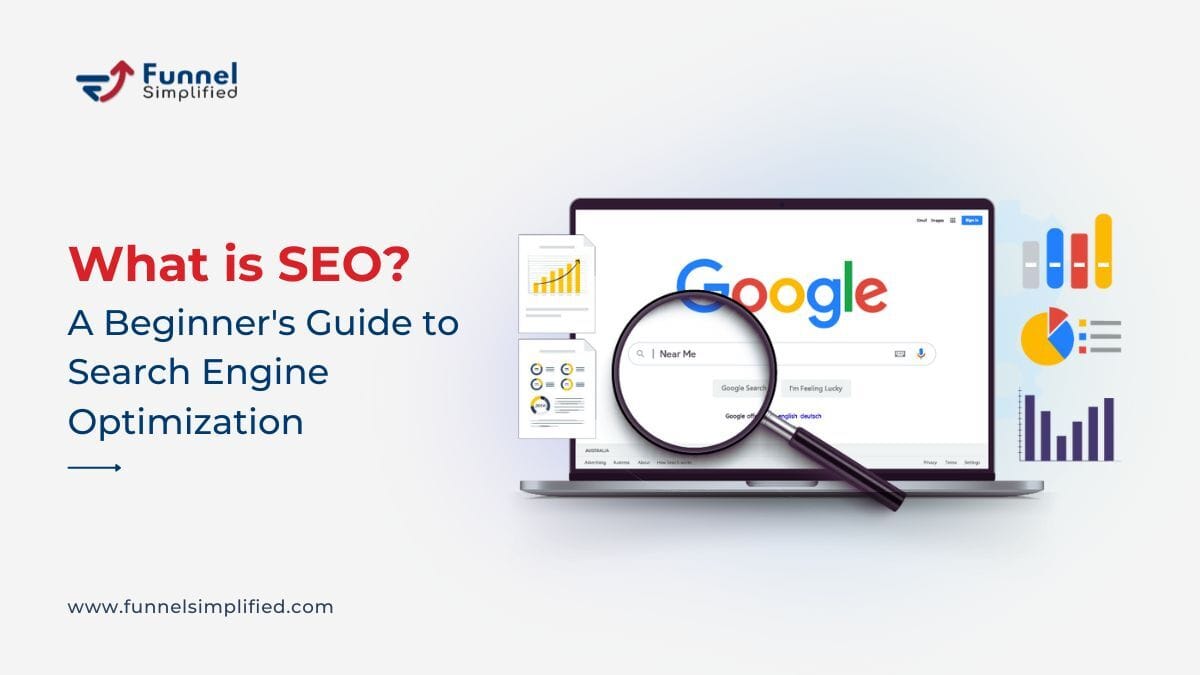
You’ve spent countless hours crafting a beautiful website. The design is sleek, the content is high-quality, and your offerings are exceptional. Yet, your site remains buried in Google’s search results, far from potential visitors. If this sounds familiar, you’re not alone. Enter SEO—your ticket to transforming a hidden gem into a high-ranking powerhouse.
What is SEO?
SEO, or Search Engine Optimization, is the practice of optimizing your website to improve its visibility in search engine results. Think of it as a guide that helps users navigate the internet and discover your site amidst the sea of online content. The ultimate goal? To rank higher for search terms that align with what you offer.
SEO isn’t a one-time fix. It’s an ongoing strategy that adapts to the changing behaviors of users and search engine algorithms. By mastering the basics, you set the foundation for sustained online growth.
Why SEO Matters
In the crowded digital world, standing out can feel impossible. SEO changes that by helping your site reach its full potential. Here’s why it’s essential:
- Increase Visibility and Traffic
SEO attracts users actively searching for what you offer, driving targeted traffic that converts into customers. - Build Trust and Credibility
High search rankings signal trustworthiness. A top spot in Google’s results enhances your reputation. - Achieve Long-Term Results
Unlike paid ads, SEO delivers lasting benefits. A well-optimized site keeps attracting visitors over time. - Enhance User Experience
SEO is about more than keywords—it’s about making your site faster, easier to navigate, and user-friendly.
SEO Basics: Your Path to Success
SEO revolves around two key goals: satisfying search engines and meeting user needs. Here’s how to get started:
1. Keywords: Your Website’s Map
Keywords guide users to your site. These are the words or phrases people type into search engines when seeking information.
How to Choose Effective Keywords:
- Use tools like Google Keyword Planner or SEMrush to find high-traffic, relevant terms.
- Think like your audience—what questions are they asking?
- Focus on specific long-tail keywords (e.g., “best SEO tips for beginners”) to reduce competition.
2. Content: The Heart of SEO
Content is what keeps users engaged and earns Google’s favor. Great content answers questions, solves problems, and provides value.
Tips for Creating Engaging Content:
- Address your audience’s needs directly.
- Naturally incorporate keywords, avoiding overuse.
- Regularly update content to keep it fresh and relevant.
3. On-Page SEO: Optimizing Your Site
On-page SEO enhances the elements of your website that impact rankings.
Key Focus Areas:
- Title Tags: Craft clear, compelling titles with your target keyword.
- Meta Descriptions: Write concise summaries that encourage clicks.
- Header Tags: Use headers (H1, H2, H3) to structure your content logically.
- URLs: Create short, descriptive, and keyword-rich URLs.
Off-Page SEO: Building Authority
Off-page focuses on earning trust and authority from external sources. It complements your on-page efforts by amplifying your site’s credibility.
1. Backlinks: Building Credibility
Backlinks from reputable websites act as endorsements. The more quality links you earn, the higher your site’s authority.
Strategies to Gain Backlinks:
- Create shareable content like guides or infographics.
- Write guest blogs for authoritative sites.
- Network with influencers or industry leaders.
2. Social Media: Boosting Reach
While social media doesn’t directly impact rankings, it drives traffic and boosts visibility. Engaging content shared on platforms like Twitter and LinkedIn can enhance your SEO efforts.
3. Local SEO: Connecting with Nearby Audiences
For local businesses, appearing in searches for nearby services is crucial.
Tips for Local SEO:
- Optimize your Google My Business profile.
- Ensure your business information is consistent across online directories.
- Earn backlinks from local publications or community websites.
Technical SEO: The Foundation of Success
A solid technical setup ensures search engines can crawl and index your site effectively.
1. Mobile Optimization
With most users browsing on mobile devices, a mobile-friendly site is non-negotiable. Ensure your website performs seamlessly across all screen sizes.
2. Page Speed
Slow-loading pages frustrate users and hurt rankings. Optimize your site’s speed with tools like Google PageSpeed Insights.
3. Structured Data
Structured data (schema markup) helps search engines understand your content. It can enhance your results with rich snippets, such as reviews or images.
Advanced SEO: Taking It Further
Ready to level up your Search Engine Optimization game? Explore these advanced strategies:
1. Voice Search Optimization
As voice search grows, optimize for longer, conversational queries. Use natural language and target question-based keywords.
2. Featured Snippets
Featured snippets appear at the top of search results, offering quick answers. Structure your content with clear headings and bullet points to claim this spot.
3. Video SEO
Video content drives engagement. Use descriptive titles, tags, and transcripts to optimize your videos, especially on platforms like YouTube.
Your SEO Journey Starts Here
SEO is a journey, not a destination. By focusing on these strategies, you’ll steadily improve your website’s visibility, traffic, and credibility. Start small, track your progress, and refine your approach as you go. Over time, your efforts will pay off, and your site will climb the search rankings.
Which strategy will you try first? Take the first step today and watch your website transform!




